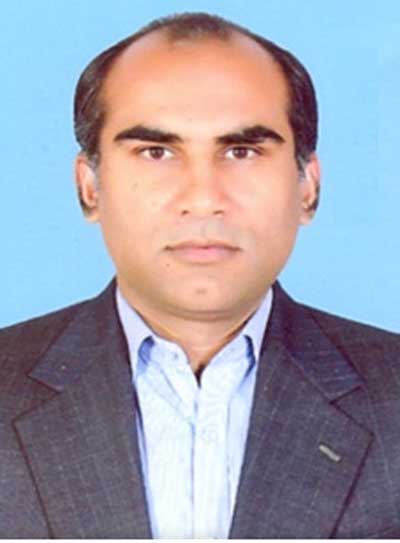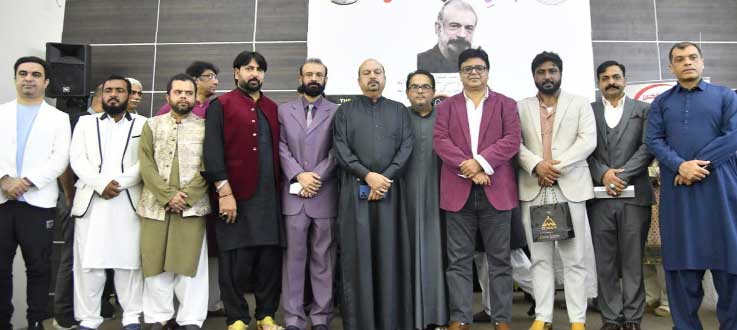The notion of corruption refers to the destruction, ruination, or deterioration of a nation or people as a result of selfishness and greed. Corruption in governance is the illegal use of authority by public officials for personal benefit. The rule of law equates to the interplay between the mechanisms that enforce control and preserve order and the individuals who govern behavior. Society as a whole can be defined as groups, institutions, enterprises, and other structures that function as an extension of how a culture as a whole operates. Corruption is a challenge to categories complex notion that takes place society’s moral life. Corruption is not defined in a single, comprehensive, and commonly acknowledged way. The efforts to construct such a definition usually run into legal, criminological, and, in many cases, political issues. Historically, corruption and sin were used in the same breath. “One of the most commonly accepted definitions is the World Bank’s definition of corruption as “the abuse of public office for private gain.”
Morality and a lack of fear and respect for the law choose a corrupt society. Economic reasons such as wealth inequality, low salaries, and lack of basic necessities all contribute to corruption. Corruption grows successfully within societies where traditional, religious, ethical teaching, and moral norms are weak. To take on corruption, the judiciary, law enforcement, and education must all work together. Extortion, graft, bribery, cronyism, nepotism, embezzlement, and patronage are all manifestations of corruption. Corruption becomes a way of life in communities that overlook it. Corruption is a threat to growth and effective governance. It must be eliminated. In order to achieve this national goal, both the government and the general public must work in tandem.
Corruption is not a new event. Kaitiya, the prime minister of an Indian king two thousand years ago described it, had previously produced a text called Arthashastra. Bribers were cast into the depths of Hell by Dante, reflecting the mediaeval disdain for corrupt behavior. Shakespeare emphasized corruption in several of his plays. However, the quantity of attention presently dedicated to corruption is unprecedented; in its end-of-year editorial on December 31, 1995, the Financial Times dubbed 1995 “the year of corruption.” The Quran also forbids corruption “devouring or misappropriating the property of others” (akl al-maal bi’l-batil – Q 4:29 and 2:188), a comprehensive notion that includes fraud, hoarding, theft, and gambling. Corruption is also prohibited according to various narrations (Hadiths) of the Prophet Muhammad (pbuh) that state as much. Indeed, ‘Abdullah bin’ Amr related that the Prophet of Allah (pbuh) stated, “May Allah’s Curse be upon the briber and the bribe recipient.”
Corruption is caused by flaws in our ability to utilize and exchange wealth and authority, which leads to four major problems: influence markets include elite cartels, affluent individuals and families, and official stumbling blocks. The use of wealth to gain influence within powerful organizations is an example of influence market activity, with officials frequently offering their own access. As a result, this corruption problem typically does not jeopardize the functioning of institutions or the broader system; in fact, doing so might put access at risk.
elite cartels by establishing networks and connections, corruption is capable of helping organize power and interfering with political change. Corruption is sometimes an issue of control rather than persuasion. Corruption of this type may be immensely profitable as interlocking groupings of elite politicians, businesspeople, bureaucrats, powerful officials, and ethnic leaders share corrupt gains, but it is also a tactic for delaying political change. Influence marketing is similar to Elite Cartel practices, but with lower levels of corruption and civil society. These Elite Cartel practices may appear to influence marketing: money and favors are exchanged, with benefits pouring on favorable groups and companies.
Organized crime, corrupt state officials, and corrupt politicians compete for large sums of money and use riches, political influence, and violence to reward followers, frequently employing both public and private power. Affluent individuals and family corruption can lead to violence due to unpredictability, a lack of law enforcement, and an inability to resolve disputes, enforce contracts, and protect property rights. Violent threats can also be used to reprimand followers. The wealthy and their family groups are easily recruited thanks to poverty, unrest, and the need for protection, yet unforeseen conflicts and instability can lead to corruption and violence. The state risks losing much of its autonomy, becoming nothing more than a source of protection and fraudulent motivations. The combination of the wealthy and families is for protection, whereas Elite Cartel corruption is for power. Countries in this group have seen rapid and significant freedom in the political system, the economy, or both, but their institutions and civil society are severely weak. Gains must be safeguarded against corruption or violence, and wealth is only safe when transferred outside.
Influence financial interests in capitalism pose a challenge to public institutions, whereas wealthy people, monopolies, and billionaires are constrained by the necessity to maintain the status quo. Official stumbling blocks, powerful incumbents, and their loyalist’s control everything. “Official stumbling blocks” are corrupt officials and politicians who utilize their clout to take public wealth. This sort of corruption is frequently large-scale and unrestrained, transcending international borders as well as those between the state and the economy. The monopolists create monopolies with few competitors and little legal or political limitation, resulting in disjointed monopolies that can suffocate economic activity. The personal goals of top leaders can make a difference in an atmosphere characterized by poor institutions and societal change, which leads to corruption and inadequate democratization efforts. In an environment characterized by weak institutions and rapid societal change. Thus, senior leaders’ personal goals can make a big difference: some may identify threats to their authority, while others do not; some may allow or encourage corruption, while others limit or even oppose it in the workplace.
The goal of the article is to rethink the current emphasis on corruption index scores, the idea of corruption as the root cause of developing-country problems, and the concept of reform as removing corrupt behaviors. Corruption presents itself in four ways, which have already been thoroughly analyzed aforementioned, and each of these requires modest and subversive effort. Corruption is exacerbated by political and economic reforms, liberalization of the economy, state, political, and social institutions, and reforms. Long-term reform requires strengthening and balancing both participation and institutions, with elites and society invested in its success. With open, competitive, and fair systems, justice is vital for citizens to pursue and defend their own economic and political well-being. Both the distinguishing qualities of our four manifestations and the ultimate goals of reform are the ability of institutions to maintain those processes and link them to one another while reining in their excesses.
A culture of corruption: The deterioration of a nation or people within




